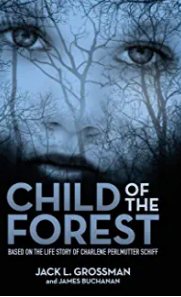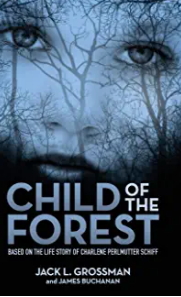
In August 1942 twelve-year-old Shulamit (“Musia”) Perlmutter and her mother escape the ghetto of Horochow in Eastern Poland following the murders of Musia’s father, sister and neighbors by the Germans. Separated from her mother, turned away by the family that had promised to shelter her, hounded by Nazis, Musia manages to survive for two years on what little she can forage in the woods.
Jack Grossman’s factual account captures, as well as words can, the hardships and betrayals Musia faces as she tries to find her way to safety. Pillaged and conscripted by their conquerors, the Polish and Ukrainian farmers Musia encounters face their own struggles for survival. Many of them, as anti-Semitic as the Germans and Russians, see her as nothing more than an opportunity to reap a bounty from the Nazis, money they can use to feed their families. The few who dare offer her food, shelter and clothing pay for their kindness with their lives.
Through all this, it’s the calm and soothing voice of Musia’s mother that keeps her going. At night, shivering in her makeshift shelter, she relives childhood memories, promising her mother repeatedly that she’ll find her. When Russian soldiers finally rescue her and take her to a hospital, the nurses, moved by Musia’s courage, give her the name “Child of the Forest.”
Following the war, Musia moves to the United States to live with relatives who escaped before the war. There she Anglicizes her name as “Charlene” and marries Army Reservist Ed Schiff. Given all she’s been through, we could easily imagine the anger and hatred she might have felt for her tormentors, yet she dedicates the rest of her life to sharing her experiences and the worldwide fight against genocide.
Jack Grossman has made it his mission to keep Musia’s story alive. Child of the Forest is available through bookstores and online.

